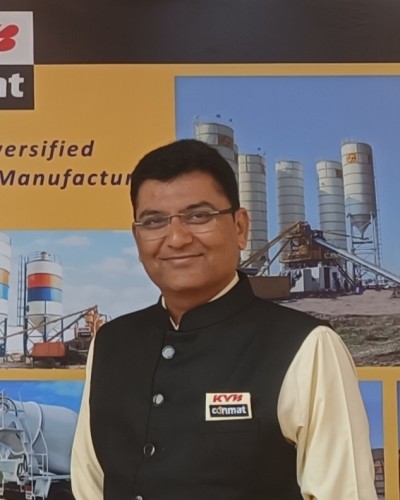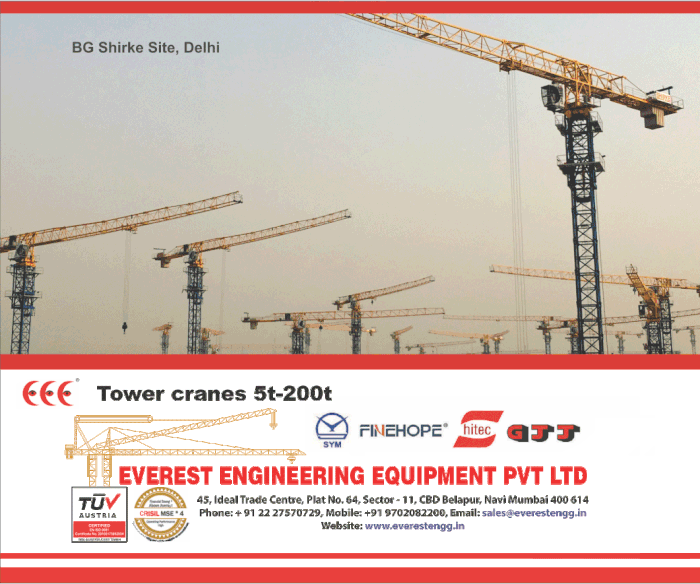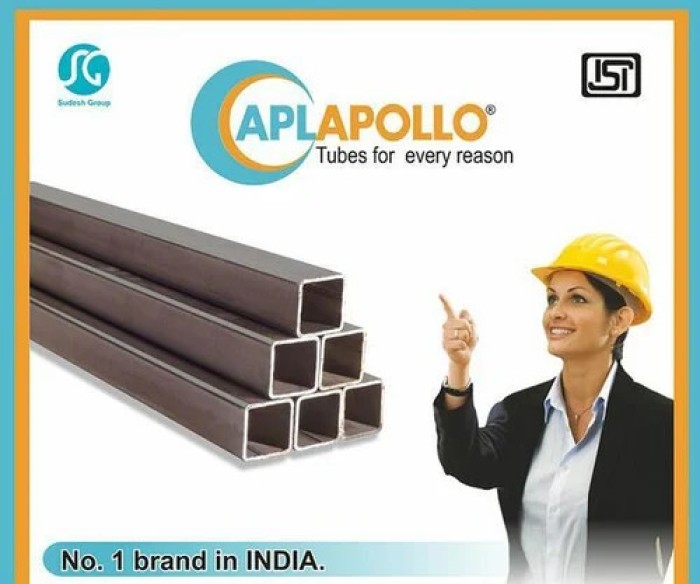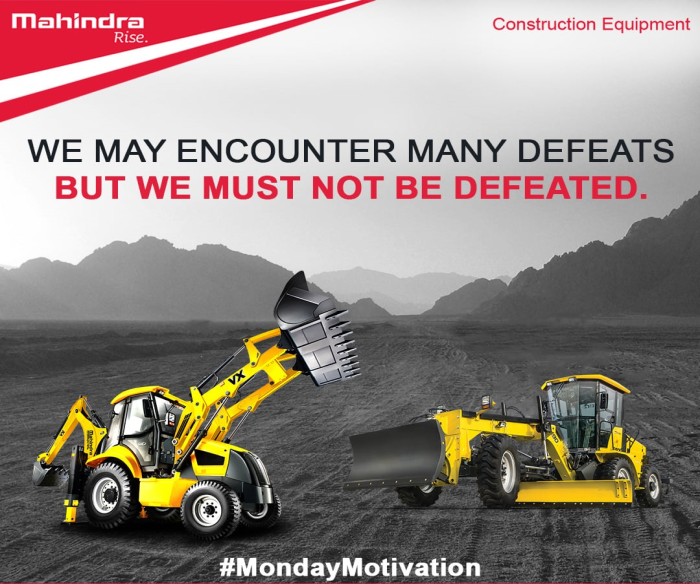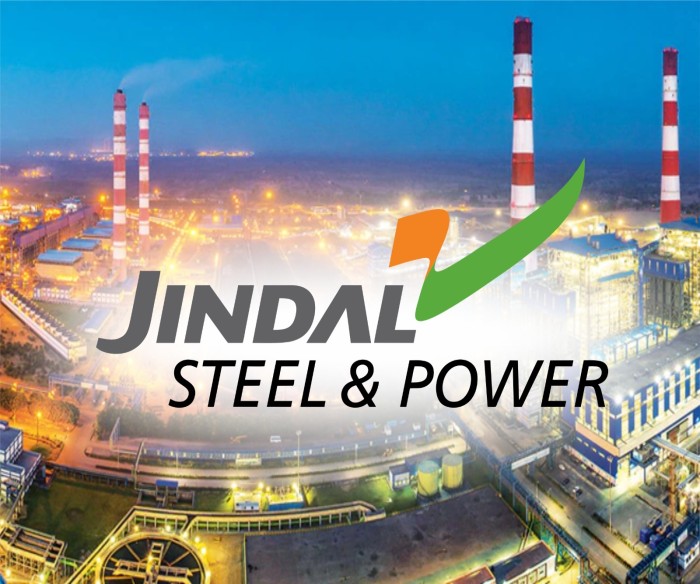"With over 15 years of experience in the Concrete industry, KYB Conmat is one of India’s leading manufacturers of concrete equipment and holds a top three position in most segments. Our Company has a strong market base of over 5000+ customers in India, in addition to our overseas customers."
Q. Can you provide an overview of KYB Conmat Pvt. Ltd.’s mission and vision?
KYB Conmat is continuously dedicated to serve the society by developing innovative technologies and products that make people’s life safer and comfortable. With over 15 years of experience in the Concrete industry, it is one of India’s leading manufacturers of concrete equipment and holds a top three position in most segments, including batching plants (20 Cu.M. – 240 Cu.M. per hour with twin shaft mixing technology), road & canal paving machines, concrete pump, transit mixers, and selfloading mixers. Its state-of-the-art manufacturing and R&D facility is located in Vadodara, Gujarat. Customers in the material handling systems and concrete construction equipment market have high expectations from the companies offering these products. KYB Conmat started its operations as material handling systems manufacturer, which require sophisticated manufacturing systems, extensive R&D and product innovations, strict quality norms, detailed financial & logistics planning, and an extensive after-sales network. It used its this experience to impart productivity, efficiency and transparency in its operations and product offering while diversifying into Construction Equipment manufacturing. The company has used its flexible, digital, and modular manufacturing systems to reduce throughput time and overheads, offering more value for money to its customers. Our Company has a strong market base of over 5000+ customers in India in addition to overseas customers.
Q.What strategies have been implemented to maintain or enhance the company’s market position?
With heavy focus on R&D backed with strong market research, it enables us to understand the needs of our customers better and serve them with the best products in the market through sustained innovations and improved manufacturing processes, helping us consolidate our position in the market. We focus on using ecofriendly materials, thereby reducing our carbon footprint in the manufacturing process. We take pride in providing exceptional aftersales service, and our sales and service network is robust, consisting of regional offices and channel partners. In the past three years, we have introduced channel partners to expand our dealer network, and we offer a range of combo parts, including our own spares warehouse, which is easily accessible through our various depots and channel partner locations, allowing us to provide this service across India and globally. Our customer care centre provides online support to customers through our online helpline centre, where our personnel can assess the plant and provide online service support. We also recognize that well-trained operators are fundamental to maximizing the efficiency and productivity of our equipment. Our initiatives in this regard include Comprehensive Training Programs & Continuous Learning programs, designed especially for the operators.
Q. How does the company stay ahead in terms of adopting and integrating new technologies? Can you highlight any recent initiatives aimed at improving operational processes?
The construction equipment market is undergoing tremendous changes as the customer needs are shifting more towards sustainable solutions, digitalization, and customization aspects. We inculcate cutting edge technologies in our products, making the manufacturing process more efficient and sustainable in nature, which when combined with digital technologies makes us the best in the market. We have incorporated technologies like IoT, Telematics, automation, and data analytics in our machines for enabling real time monitoring, remote operation, and predictive maintenance. We inculcate measures like energy saving features, optimized designs, advanced control systems etc. to minimize downtime and maximize output. Our Self-Loading Concrete Mixers machines are IOT enabled, BS-4 and ARAI compliant, offering better fuel efficiency. We make our machines as per latest standards of the emission control and aggressively work towards making our machine more environmentally sustainable in the process.
Q. How does KYB Conmat maintain strong relationships with its customers?
We focus on understanding the changing customer needs and demands through extensive market research, incorporating the best innovations possible in our products through sustained R&D which makes our products more efficient and sustainable, adhering to high quality and certification standards, thus making our products one of the finest in the market. We also heavily focus on customizing our products for the customers as we understand the complex projects that they are involved in, thus enabling them to get the best possible solution. Also, we are constantly working towards expanding our supply chain, so we don’t face disruption issues due to unpredictable global headwinds. With the best network of dealers and after-sales service, we are committed towards serving our customers in the best possible manner.



